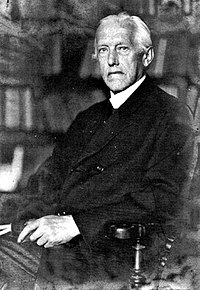Secções dum capítulo sobre a crítica ao livro Origem da Tragédia de Nietzsche por parte de Wilamowitz, classicista de futura colossal estatura cuja resposta hostil constituiu a única resposta do 'classicismo institucional' ao livro, e a defesa do mesmo livro pelo grande amigo de Nietzsche, Erwin Rohde.
What had affronted Wilamowitz (Rohde continued) was not [the fact that Nietzsche did not cite his sources], but the seriousness of Nietzsche's attempt to put his classical learning to a higher use than the usual cultivation of sharp-wittedness and memory. And it was sad but true that in the world of contemporary classics even genuine scholars would be suspicious on finding that Nietzsche had any extra-scholarly purpose, and above all when they gathered what that purpose was: 'the understanding of the noblest works of art' as a guide towards an 'artistic existence'. They would also react with horror on learning that the original inspiration of Nietzsche's theory of Greek art was Schopenhauer. The modern scholar believed in an 'objective' interpretation of the past, achieved only by exclusive reliance on 'evidence', unaware that in classics, as in life, the significance of isolated phenomena was accessible only to a unified interpretative vision which must have some positive source outside the phenomena themselves. This (he argued) was not only defensible, but essential. The alternative was not 'objective interpretation', but the unconscious reading in of modern prejudices. In any case, what Schopenhauer had said (and Wagner himself had confirmed) carried a special weight, beyond all scholarly findings. (...) In his conclusion, Rohde looked again to the culture goal of Nietzsche's book. The purpose of classical studies was more than the cultivation of a harmless luxury. Its true purpose was to perpetuate the memory of the richest period of antiquity to serve as our constant cultural example, as it had served in the time of the poet Schiller and the scholar F.A. Wolf. In commiting himself to the cause o contemporary culture, Nietzsche was not nullifying his subject, but living up to it.
[...]
The lack of support Nietzsche received from his colleagues marks the final closing of the long era in which classical studies and classical scholars —and not merely classical ideals— occupied a place in the vanguard of western culture. Winckelmann, like the scholars of the Renaissance, was a major figure both in the classical world of his day and in the world of intellect and culture as a whole, and in his time a distinction between 'classics' and 'culture' would have had no meaning. The distinction was established between Winckelmann's time and Nietzsche's generation, and (as Wagner saw) made rigid by classical scholars in the interests of scholarly purism. In the years after Birth of Tragedy, Wilamowitz , who in scholarly terms was to become a much greater figure than Nietzsche, played an important part in dismantling the barriers between the various aspects of the subject which had been erected in the decades of specialization after Wolf. However, the barrier between the subject itself and contemporary cultural life was not dismantled. It was not Wilamowitz who put it up, but neither he nor his profession showed any serious interest in removing it.
M.S. Silk & J. P. Stern, Nietzsche on Tragedy. Cambridge University Press. (1981)






Diese Gesinnung muß wieder da sein.
ResponderEliminar